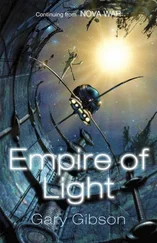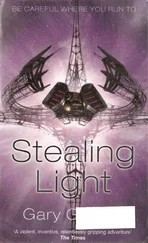The second part of the story is short and familiar. It parallels your own life, so it is that much the easier to remember. It lends itself handily to discussion in groups small and still smaller. I will recite it in its entirety:
Son, you cunt!
Shall we face something else?
I had a sister once.
The center square of the little city where she had grown up still had a couple of “comfort stations.” That was what they called those belowground public lavatories whose stairwelled entrances, sided and canopied with frosted glass, looked like gateways to some sunken Victorian exposition. She could not remember whether she simply wasn’t allowed down there or just preferred holding it in.
This sister was the self-silencing type.
She was done up in a body bereft of freckles or shine.
She never found a way to get her hair rioting upward in the flaring fashion of her time.
Loo (for that was the name she used) was already at that stage in her headway toward demise where it was best to tell people what they wanted to hear. What they mostly wanted to hear was that nobody else, no matter her station in life, ever really knew how much it was she should by now have gone ahead and packed.
Her sleep in those days was generous to a fault. But she would wake up and feel herself felled by the clarities and definitudes of the new day. Then to work, in the afternoons, in a windowless basement office in an overchilled building on the outskirts of town. There would sometimes be too rational a cast to her mind, and sometimes she nodded off, but this was an ungiving, dream-free species of sleep and did not want her in it. There was nothing to be made of it, either. It left no residue.
She was a remainder of her parents, not a reminder of them.
Her private life was not so much private as simply witnessless.
The shops in those days did in fact sell something called a “body pillow,” but she had not brought any of them home yet.
Her second job was an older person’s job.
She was afraid there was nothing she didn’t find entirely mysterious, nothing that didn’t make her feel as if she had never once belonged in her life. But the two or three people to whom she had been closest had always been the most difficult to fathom or even unveil. Even their faces seemed to destabilize themselves into new forms of unrecognizability under the hardly forceful pressure of her gaze. She would no longer know who the person was that was morphing disorganizingly before her eyes while the two of them were eating or pretending not to be hungry or doing whatever they did that kept them together undefended. She would have no steadying sense of what the person truly looked like from one instant to the next. And if the externals were themselves so mutable, there could be no end to speculation about what exactly might be going on inside any human body purposely neighboring her own. There was no reliable way of finding out. Everything she claimed to understand about people was no more than hazarded.
She wanted to convince herself that there was a way to learn how she might securely know just one thing, maybe a couple of things, about any other person — if only the most persuasive of that person’s reasons for having hated his handwriting at the moment it came time at last to make a list of things that must change absolutely right away or else.
Other things that brought a better grade of sorrow into her world, broadened her agony, etc.?
She had the disadvantage of apparently looking like a lot of other people, because she was often accosted by strangers who took it for granted that she was somebody they knew, and they insisted on resuming conversations broken off long ago and threw fits when she could not supply the precise lines of flattery or remorse they had been waiting all this long while to hear.
She had been living for some disorderly time in furnitureless, dun-colored small-town apartments with the blinds drawn at all hours. She had never learned the names of the streets. She had only a punctured knowledge of geography. She supposed that it helped her to be far from the center of anything, never incited by what went on in thicker populations.
Looking too long unfondled, she would doubtless have a different answer now, but coach herself forward she did. A heavy-haired girl of terrorizing ordinary beauty cornered her, unpeppily, at some upstairs cabaret, but were teems of feeling fizzing between the two of them afterward? Or did memory spoon out some garniture of emotion over everything taking its time in catty months to come?
Nothing nestled in her remembrance.
There were belongings to buy, and a ruesomeness incompressible into any of the words she knew, and a past already kaput and ready to rebulk, rebuke.
But twenty-two, twenty-three — she was running out of realms.
Or it was just that she had such an overacquaintance with herself, suffered from such an oppressive overintimacy with her body and the contents of her every minute, that on those rare occasions when she stumbled upon a glimpse of the bigger picture of herself, and actually got a look at the contours of her life, she was practically undone — because the microscopic view and the larger perspective did not fit together at all. So she was plunged into a disabling uncertainty that at length infected her speech and gave her trouble with the first-person pronouns, because the range of reference was now clouded and baffling.
There were jolts and didders to her nervous system.
Her life did not so much advance as narrow itself out unamelioratingly.
But did she shoplift?
With fingers so thin they looked like snippets from somebody else’s?
She was not blessed with a voice in the head that furnished a running interpretation of human incident. Lives around her motioned brokenly this way and that. She made herself more available, visible, riskful. But even her own body would not honor her. There were flubs in her private locations, and her hands did not mix all that well with each other.
There was in fact less and less talk in her life, and when she did speak, it was as if the words were issuing not from her mouth but from some rent in the murk of her being. It was the penetralia speaking for once and at last. So what came out did not sound that much like ordinary utterancy but came crashing out of the vocabulary she kept crashing herself against.
Her bugginess and obsessions and sexual instabilities were probably never that far from home, though they were mostly a tiny and shrinking department of her life.
It was a life into which others now and again must have pitched some of their woe.
Our mother?
Two parties must be present at every birth.
Neither ever survives in one way or another.
While she was growing up, some packages of potato chips used to carry, on their backsides, a defensive notation along the lines of “This package is sold by weight, not by volume. Contents may have settled during shipment.” It put her in mind of daily, unshapeful life — though the generalizings about it would carry her only farther and farther away from where she was trying to throw herself at the first perfectly rotten mood to come along in anyone looking more likely to last.
And our father?
As a girl, she must have known it was a coin collection, at least of sorts. But the nickels and silver dollars had not been pressed into any of those gloomy folders from some hobby shop.
My sister needed the chocolate teenies, the sourballs, the licoriced whatnots.
She was big on upshots and bitter ends, but she did not see herself as polarizing. Why should she have to see herself at all? That was somebody else’s affliction, not hers. She had learned long ago how to prepare herself for a day without recourse to a mirror.
Читать дальше












